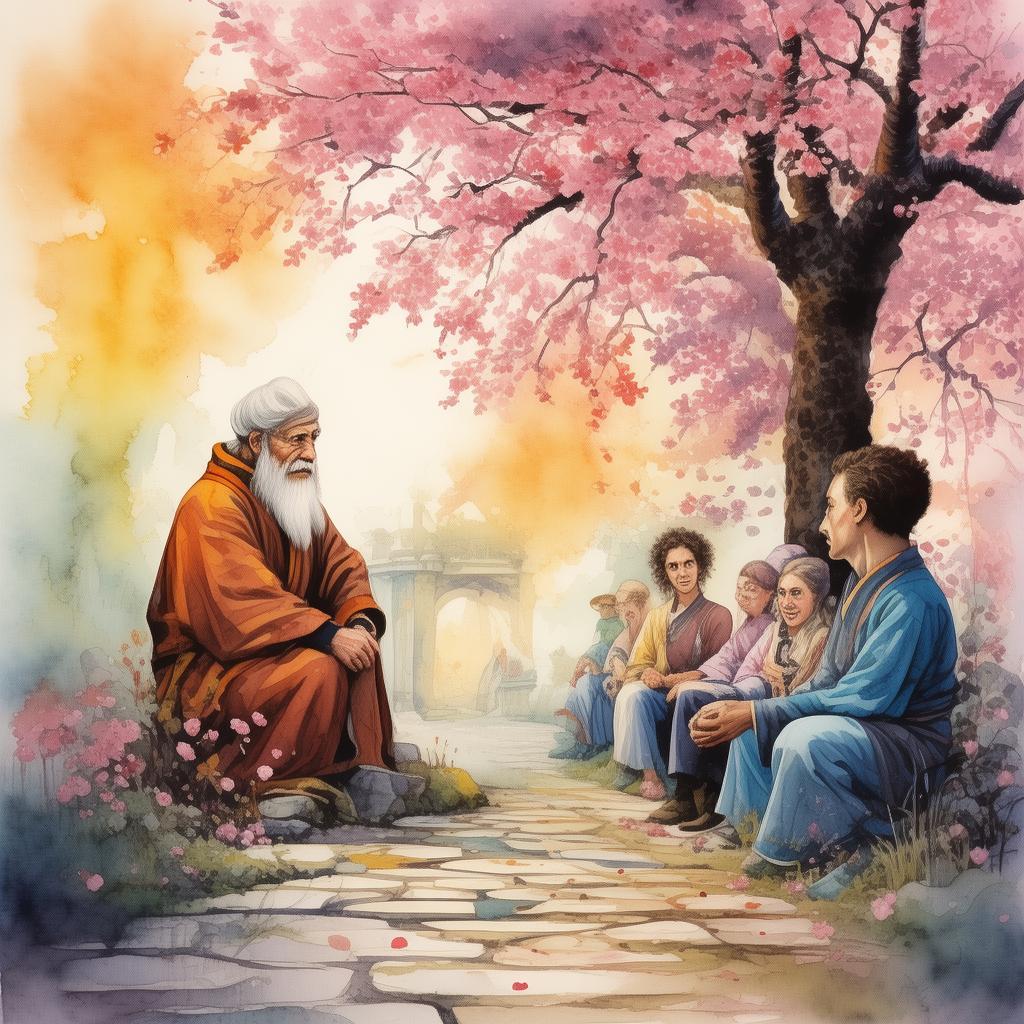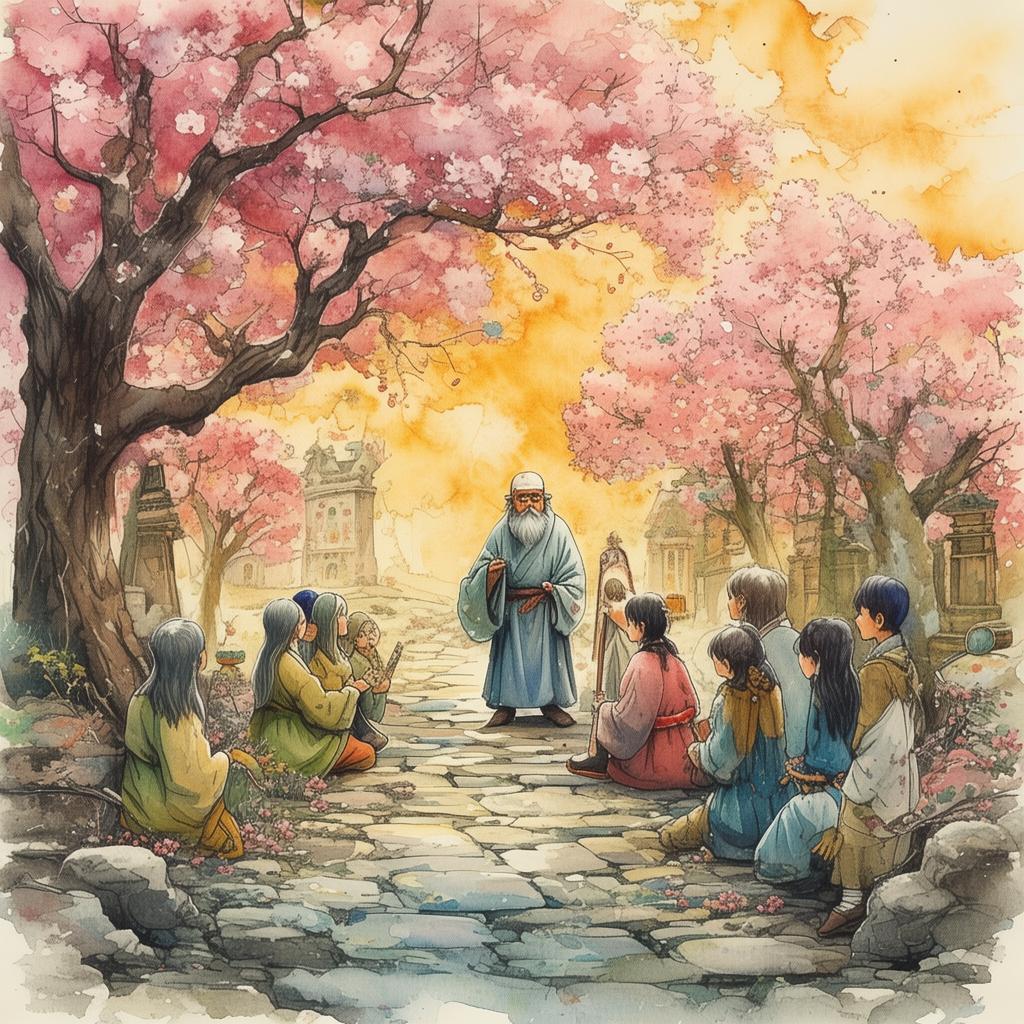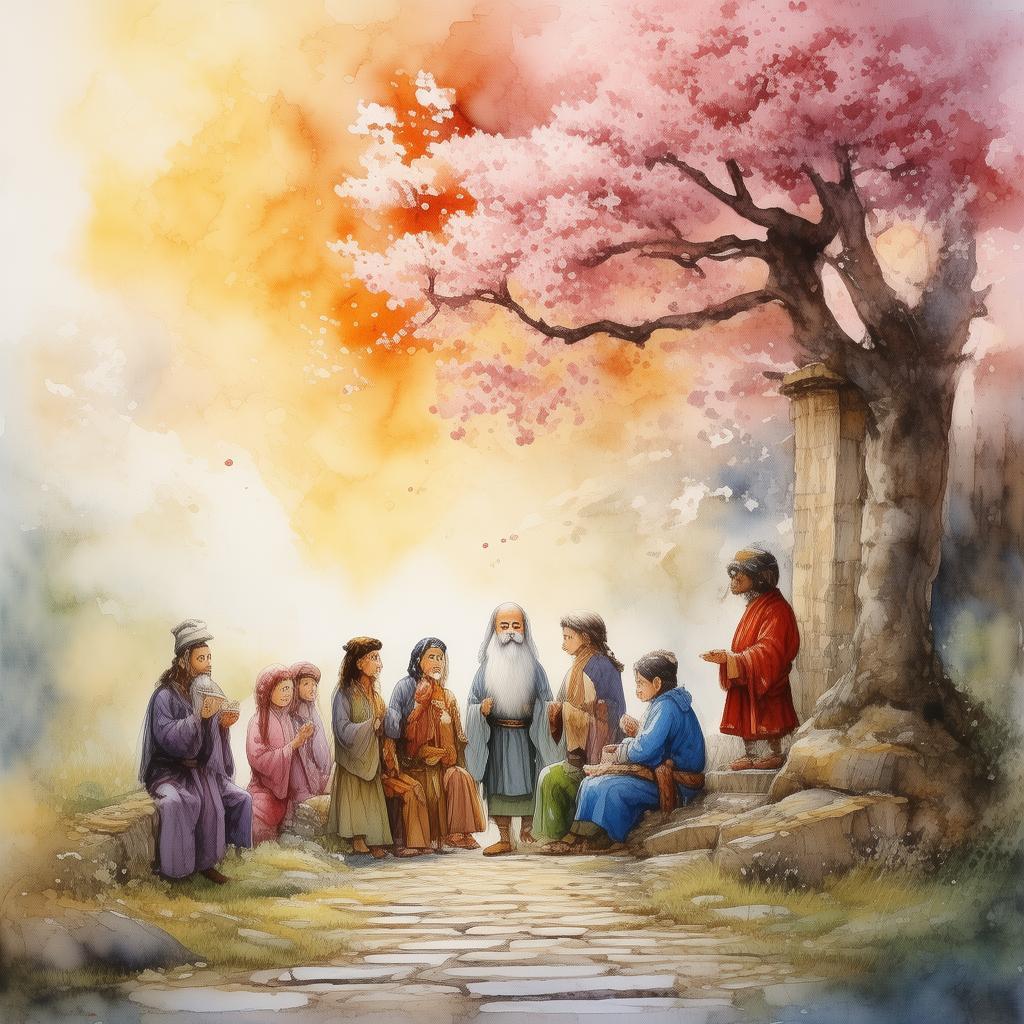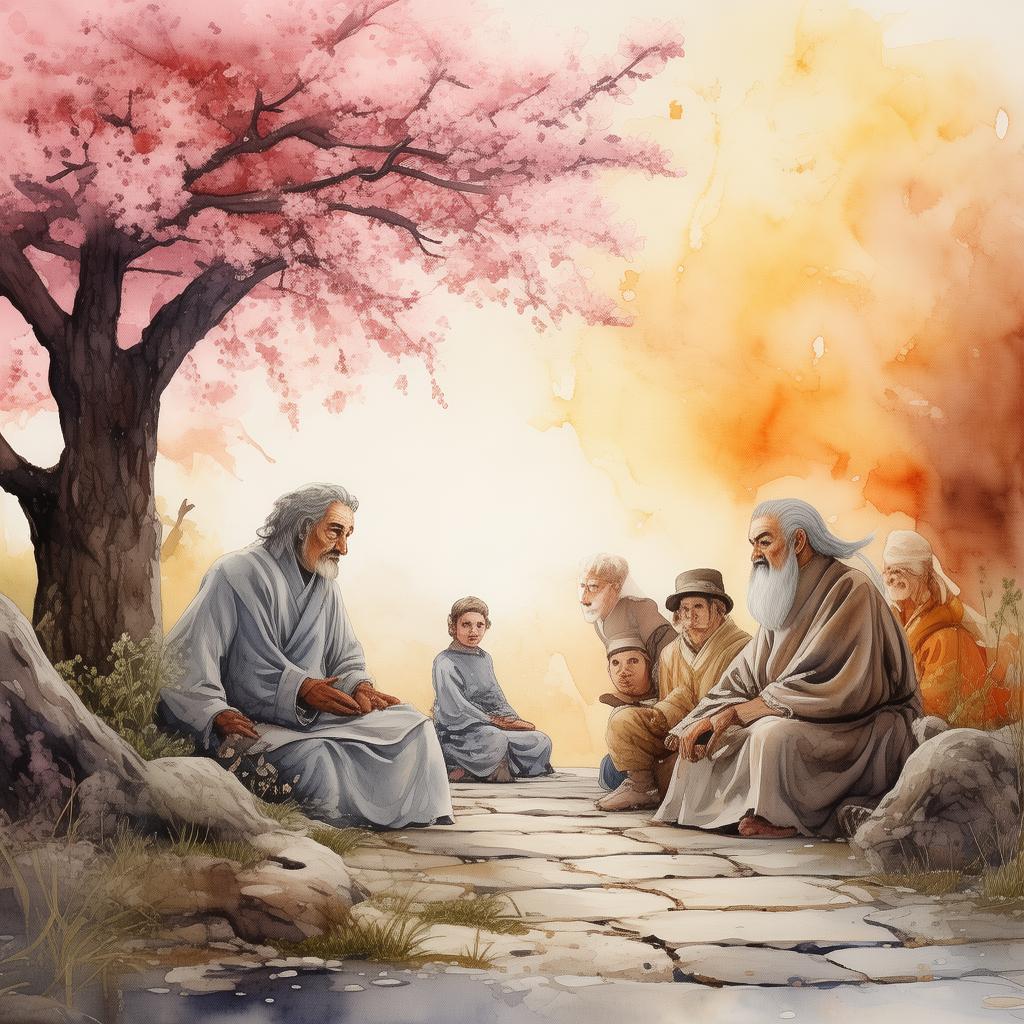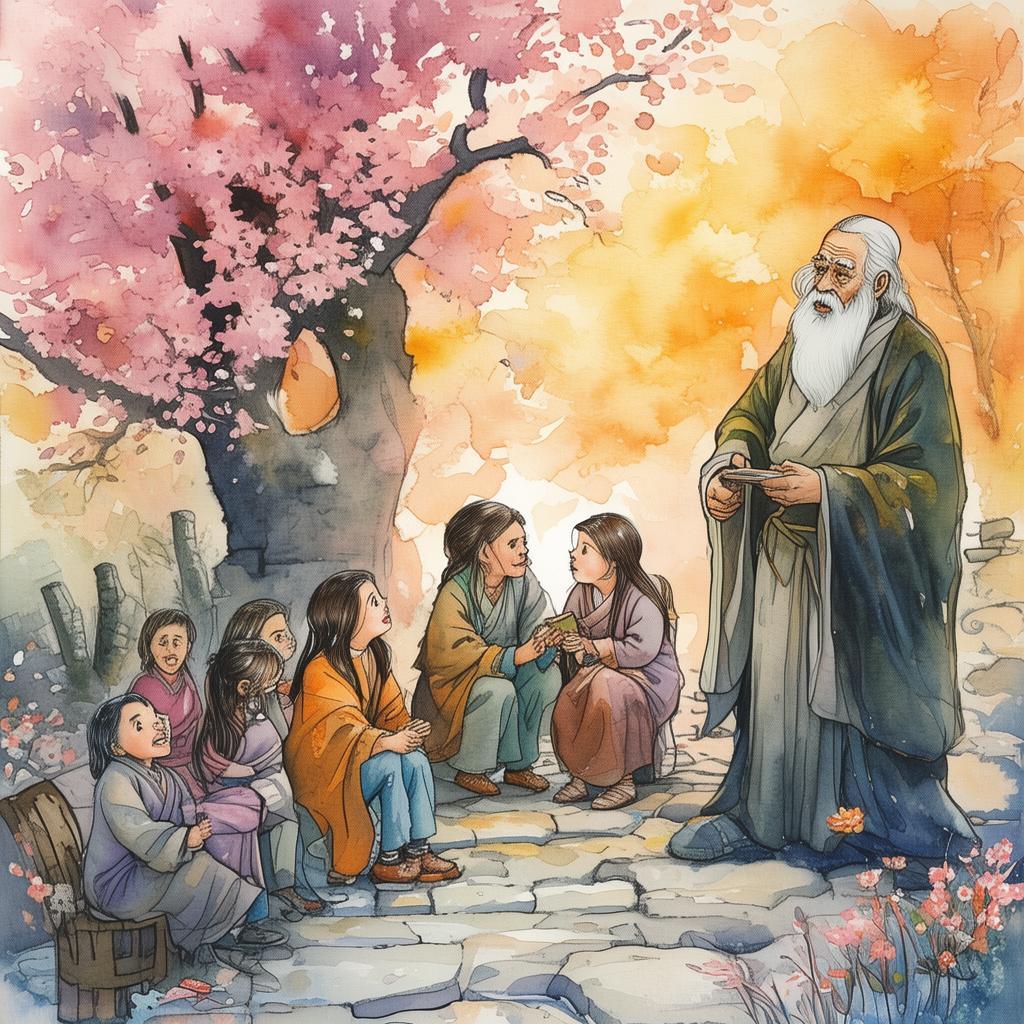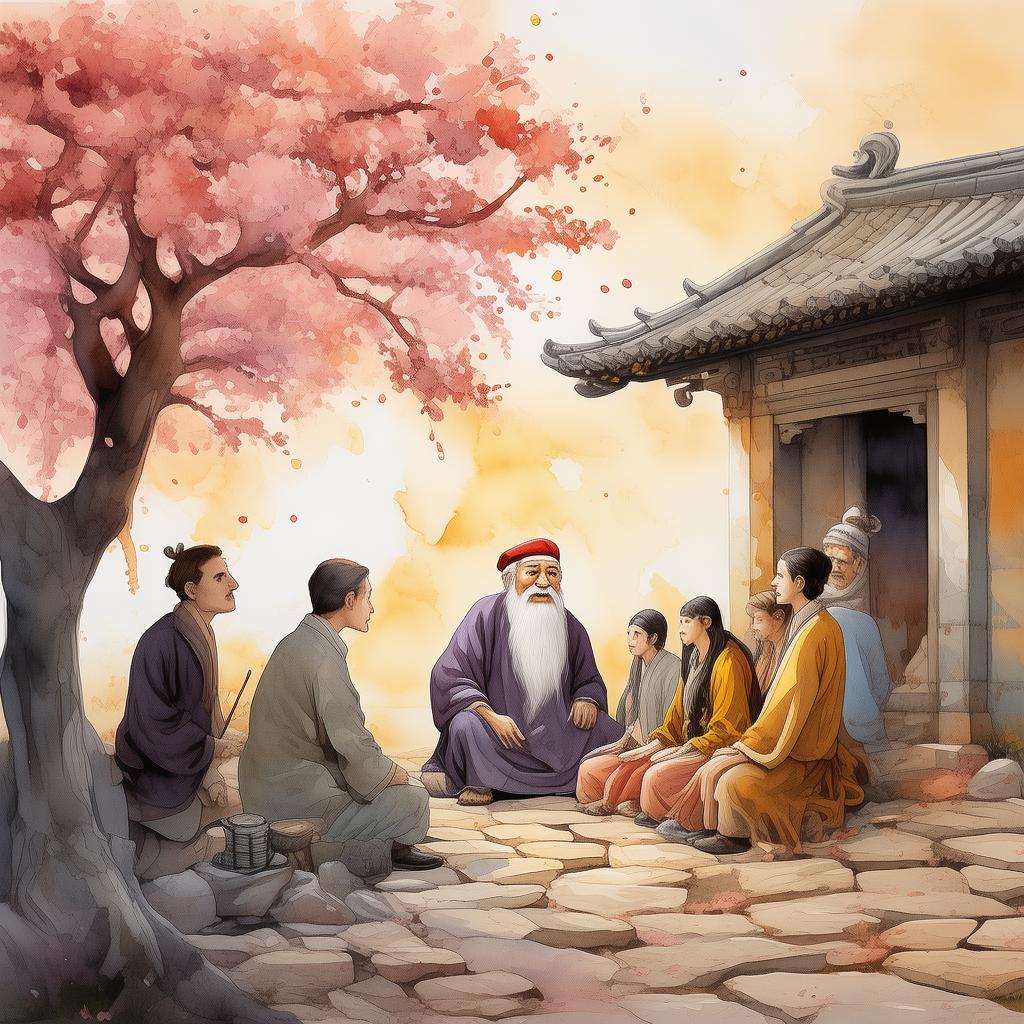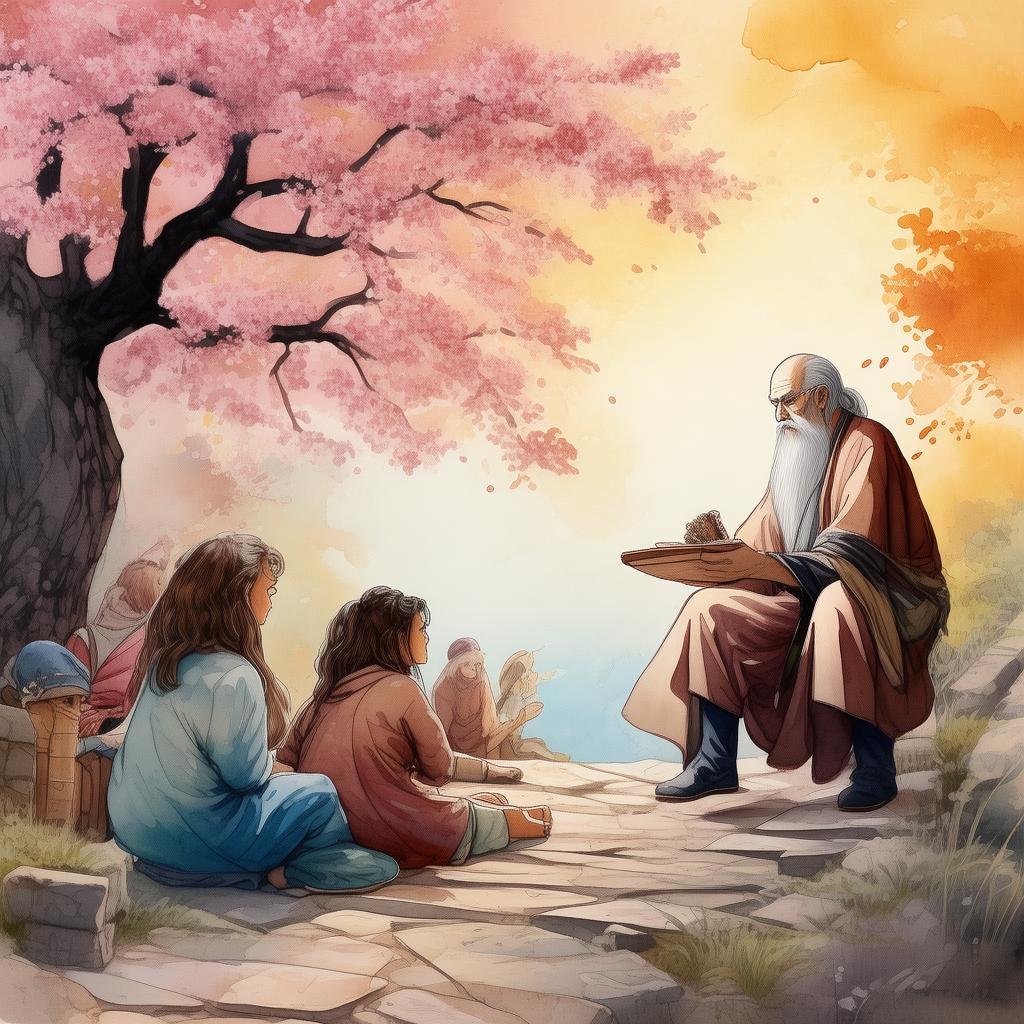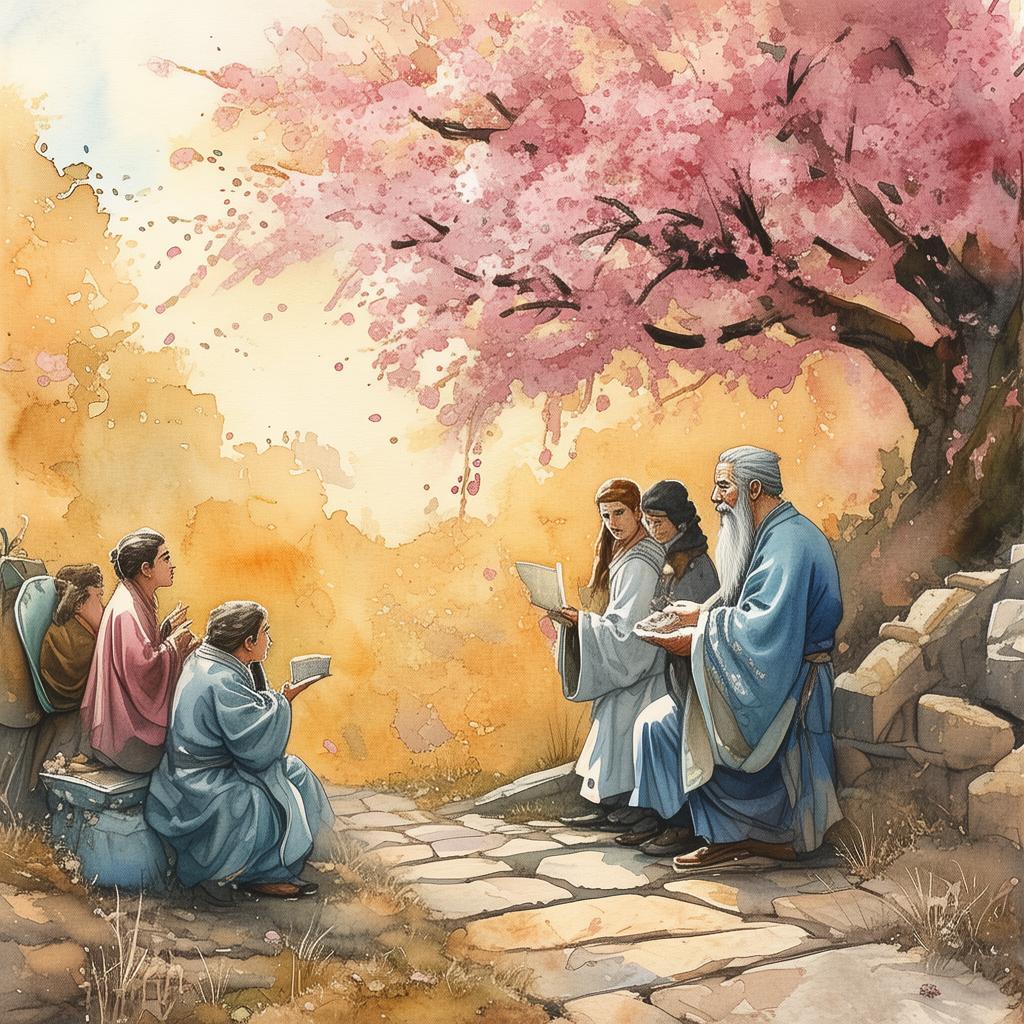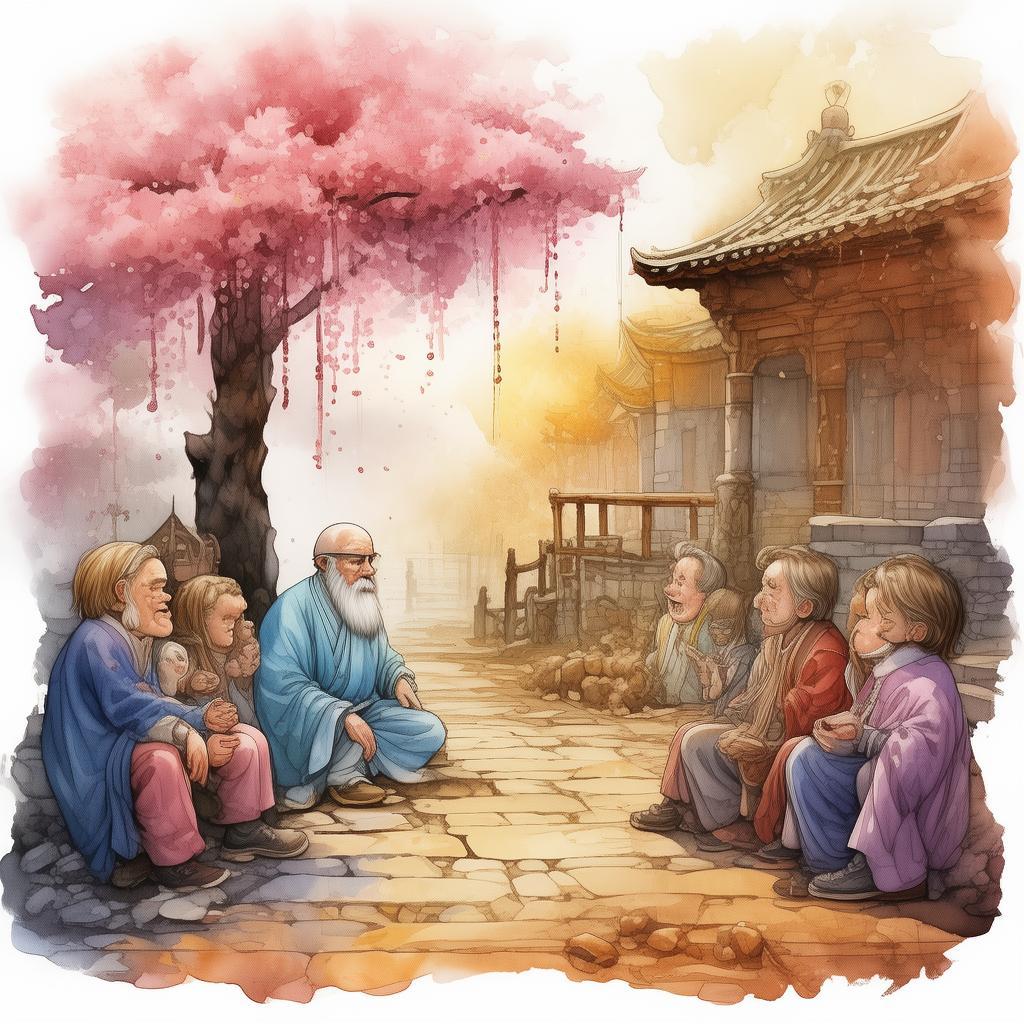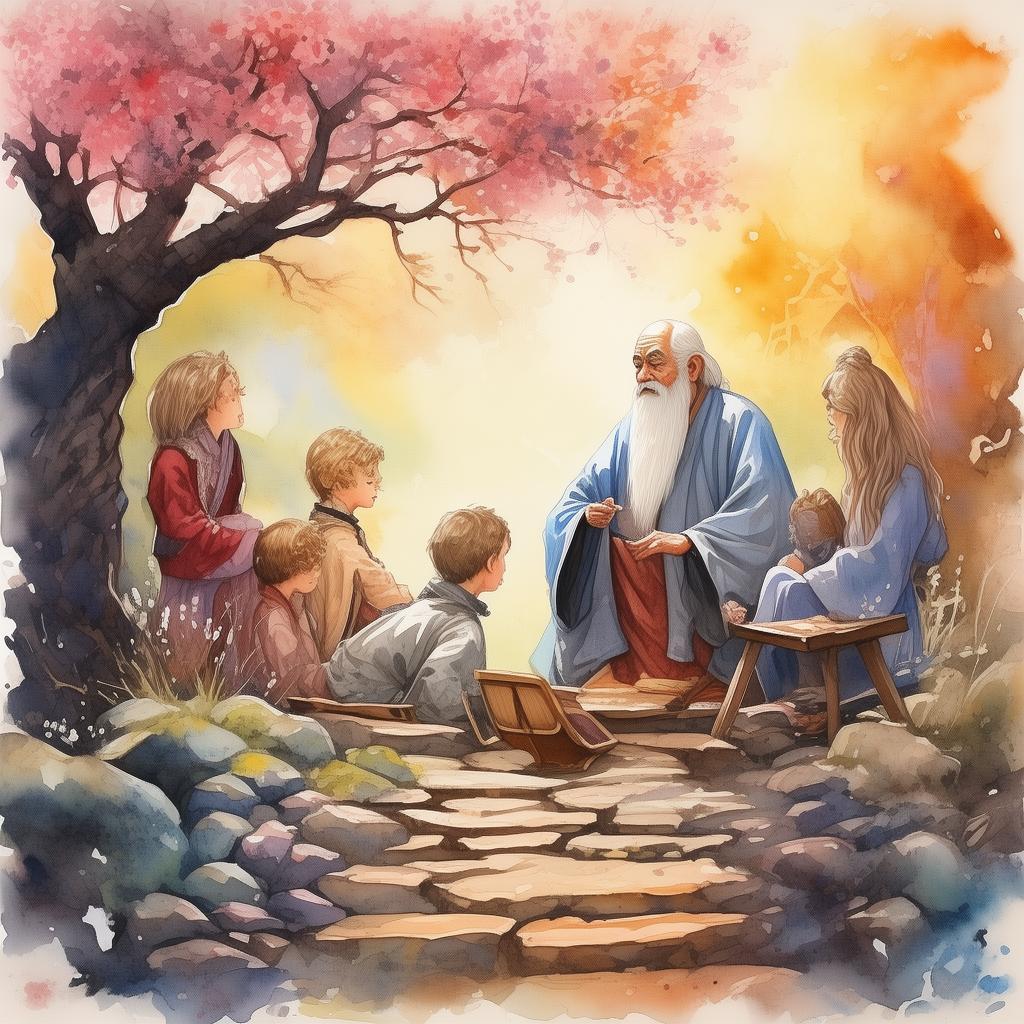Parallel Perils: Zhuangzi's Zen Dilemma
In the ancient land of China, where the whispers of Taoism danced through the air, there lived a Zen master named Zhuangzi. Known for his profound wisdom and the ability to transcend the mundane, Zhuangzi was a man of many paradoxes. His teachings were a tapestry of contradictions, and his life was a labyrinth of choices that led to parallel universes.
One day, Zhuangzi found himself in a serene garden, surrounded by the beauty of nature. As he meditated beneath the boughs of a willow tree, he felt a strange sensation, as if the very fabric of reality was shimmering with possibilities. It was then that he saw a vision—a vision of himself, but not in this world.
In the parallel universe, Zhuangzi was a different person, with a different life, yet with the same essence of wisdom. He was faced with a dilemma that would test his Zen principles to the core. The parallel Zhuangzi was the ruler of a kingdom, and his choice was to either bring prosperity to his people or to let nature take its course, leading to a natural decline of his reign.
The Zen master in the garden watched intently, aware that his decision in this parallel universe would have a profound impact on his own reality. He knew that the choice he made would ripple through all the parallel universes, affecting every aspect of his existence.
In the garden, Zhuangzi felt a wave of existential dread. He pondered the nature of reality and the consequences of his actions. He remembered the ancient teachings of Taoism, which emphasized the harmony of the natural world and the importance of living in accordance with the Tao, the "Way."
As he delved deeper into his meditation, Zhuangzi realized that the parallel universe was a mirror to his own soul. The choices he made were not just about the fate of a kingdom, but about the fate of all the parallel universes that existed in the vast tapestry of reality.
The parallel Zhuangzi, now king, faced a crisis. A terrible drought had befallen his kingdom, and the people were suffering. The advisors around him offered various solutions, each more desperate than the last. But the king, a man of deep wisdom, knew that the true solution lay not in the hands of man, but in the hands of the natural world.
He chose to step aside, to let nature take its course. The people were shocked, but the king remained steadfast. He believed that by allowing the drought to pass, the kingdom would be better prepared for the future, and the natural world would heal itself.
As the days passed, the drought lifted, and the kingdom flourished. The parallel Zhuangzi, now revered as a wise ruler, learned that true power came not from control, but from harmony with the natural world.
In the garden, Zhuangzi watched the parallel universe unfold, his own reality mirroring the events of the parallel world. He realized that his choice had not only affected the parallel universe but had also brought him closer to enlightenment.
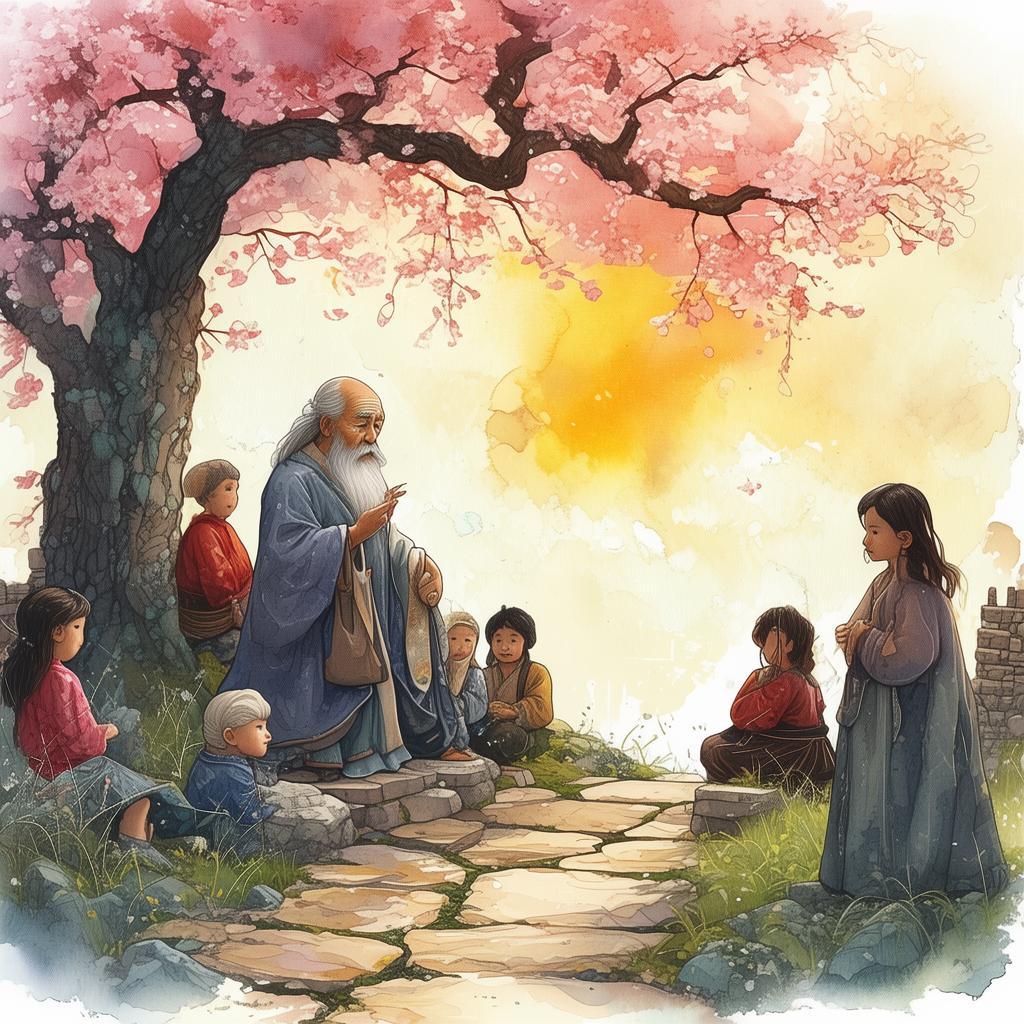
The Zen master understood that the parallel universes were not separate from his own reality; they were extensions of his own consciousness. The choices he made in the garden were as real as those made by the parallel Zhuangzi.
With newfound clarity, Zhuangzi returned to his garden, the weight of the world lifted from his shoulders. He had learned that the true path to enlightenment was to make choices that reflected the harmony of the natural world, to live in accordance with the Tao.
The story of Zhuangzi's Zen Dilemma in the Parallel Universes serves as a testament to the power of choice and the interconnectedness of all things. It teaches us that every decision we make has the potential to ripple through the universe, affecting the lives of all beings.
In the end, Zhuangzi found peace in the garden, his mind at ease. He had found the balance between the material world and the spiritual, between the self and the universe. And as he sat beneath the willow tree, he knew that the path to enlightenment was a journey of constant choice, a dance with the Tao that would never end.
✨ Original Statement ✨
All articles published on this website (including but not limited to text, images, videos, and other content) are original or authorized for reposting and are protected by relevant laws. Without the explicit written permission of this website, no individual or organization may copy, modify, repost, or use the content for commercial purposes.
If you need to quote or cooperate, please contact this site for authorization. We reserve the right to pursue legal responsibility for any unauthorized use.
Hereby declared.
